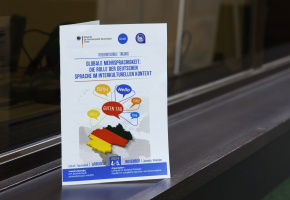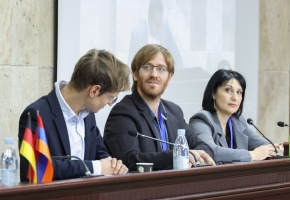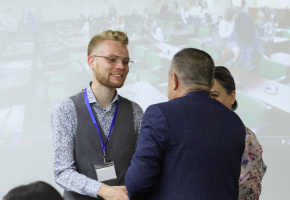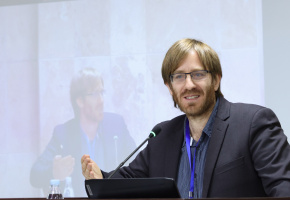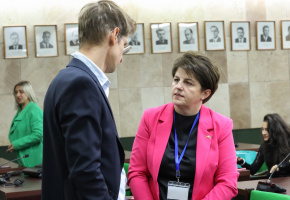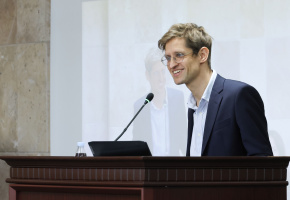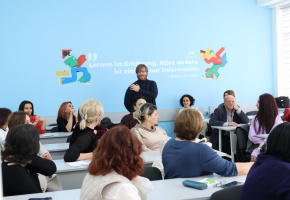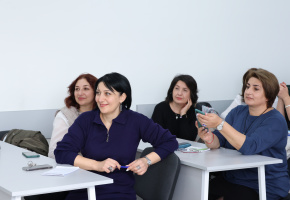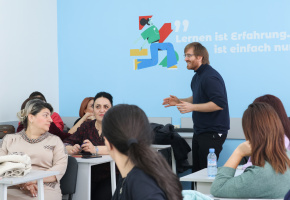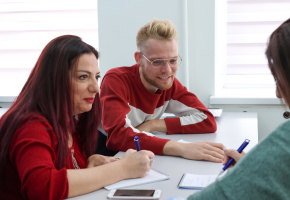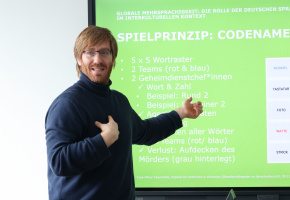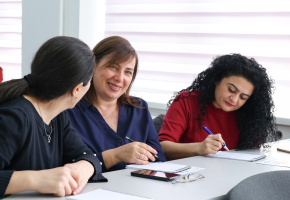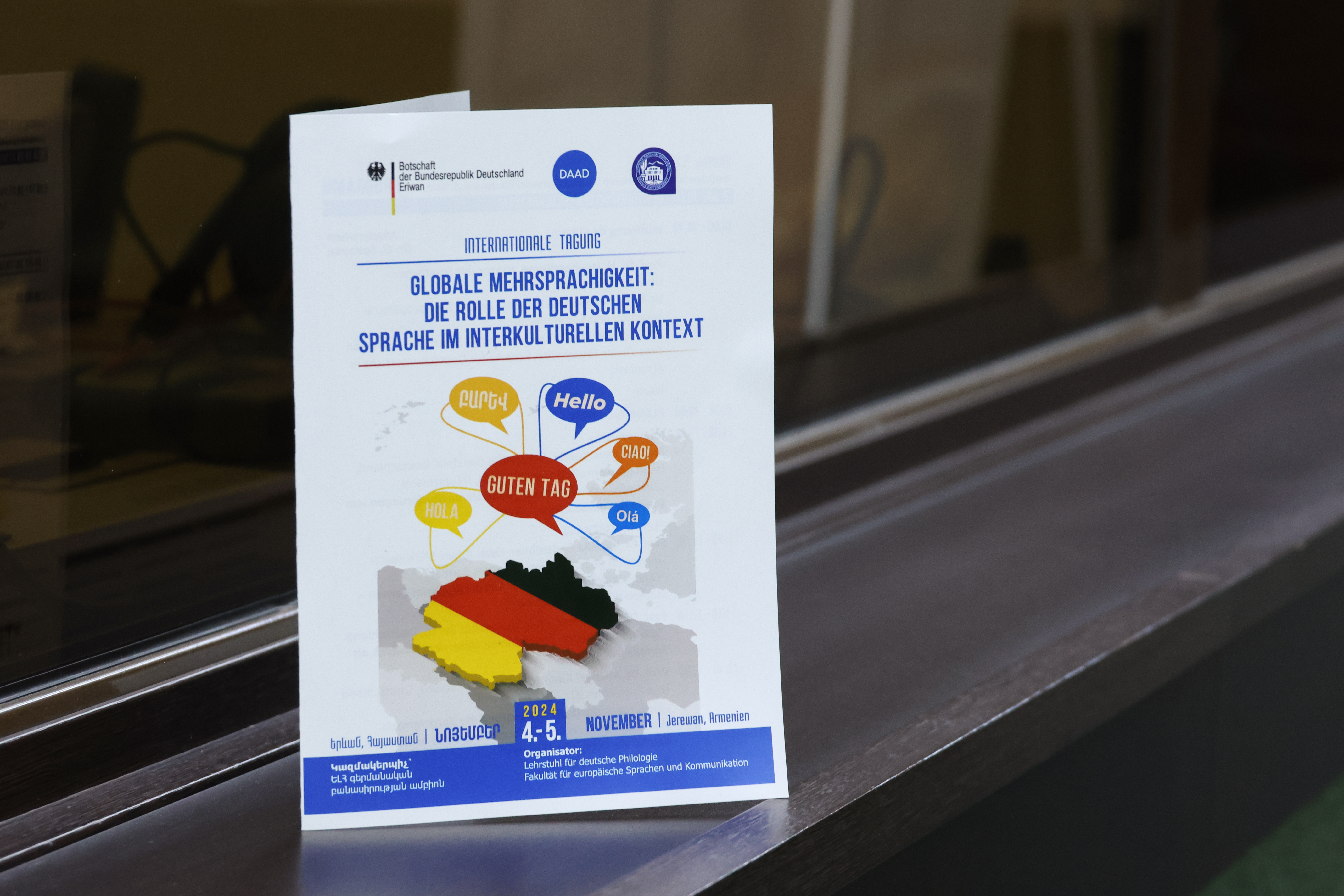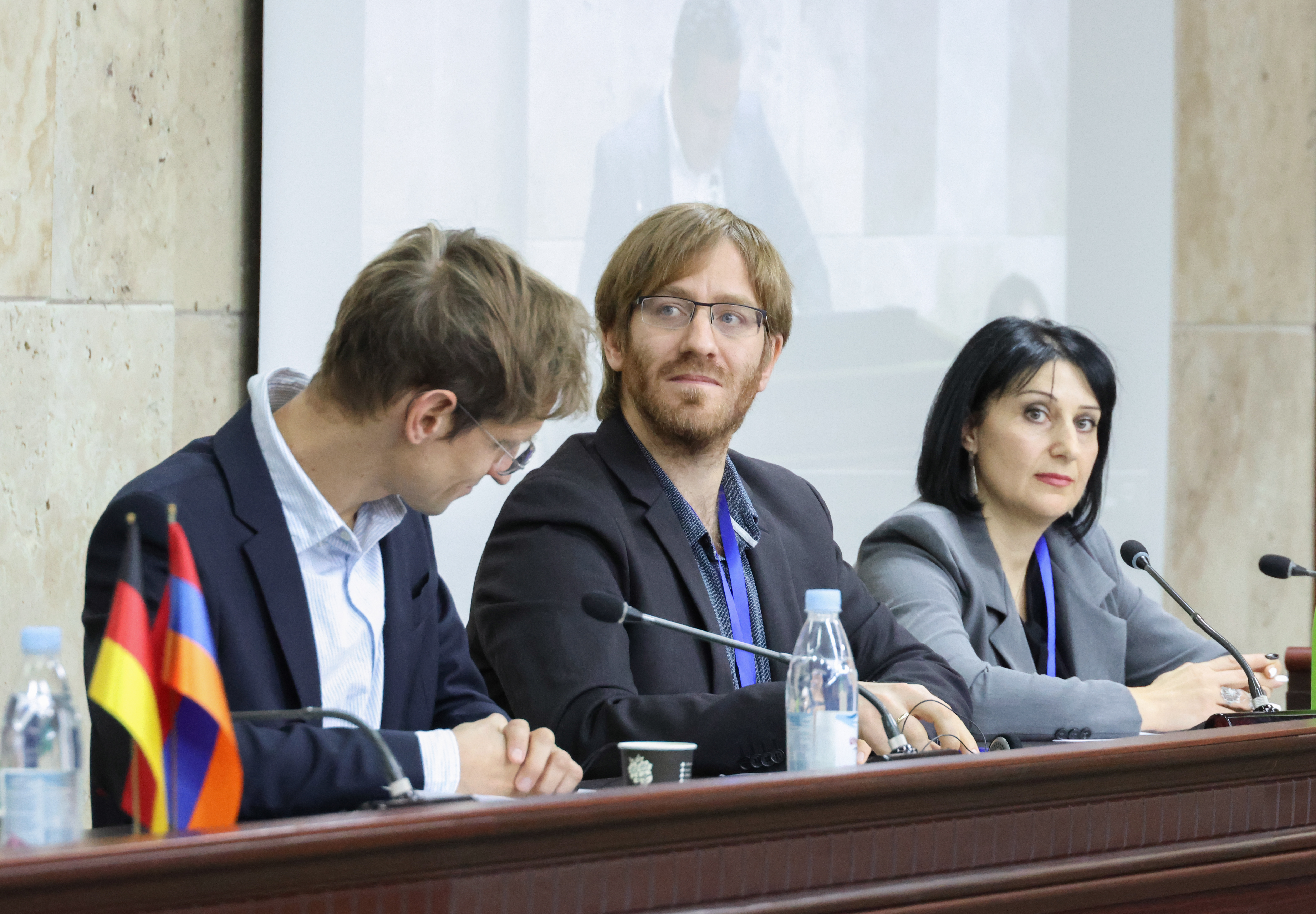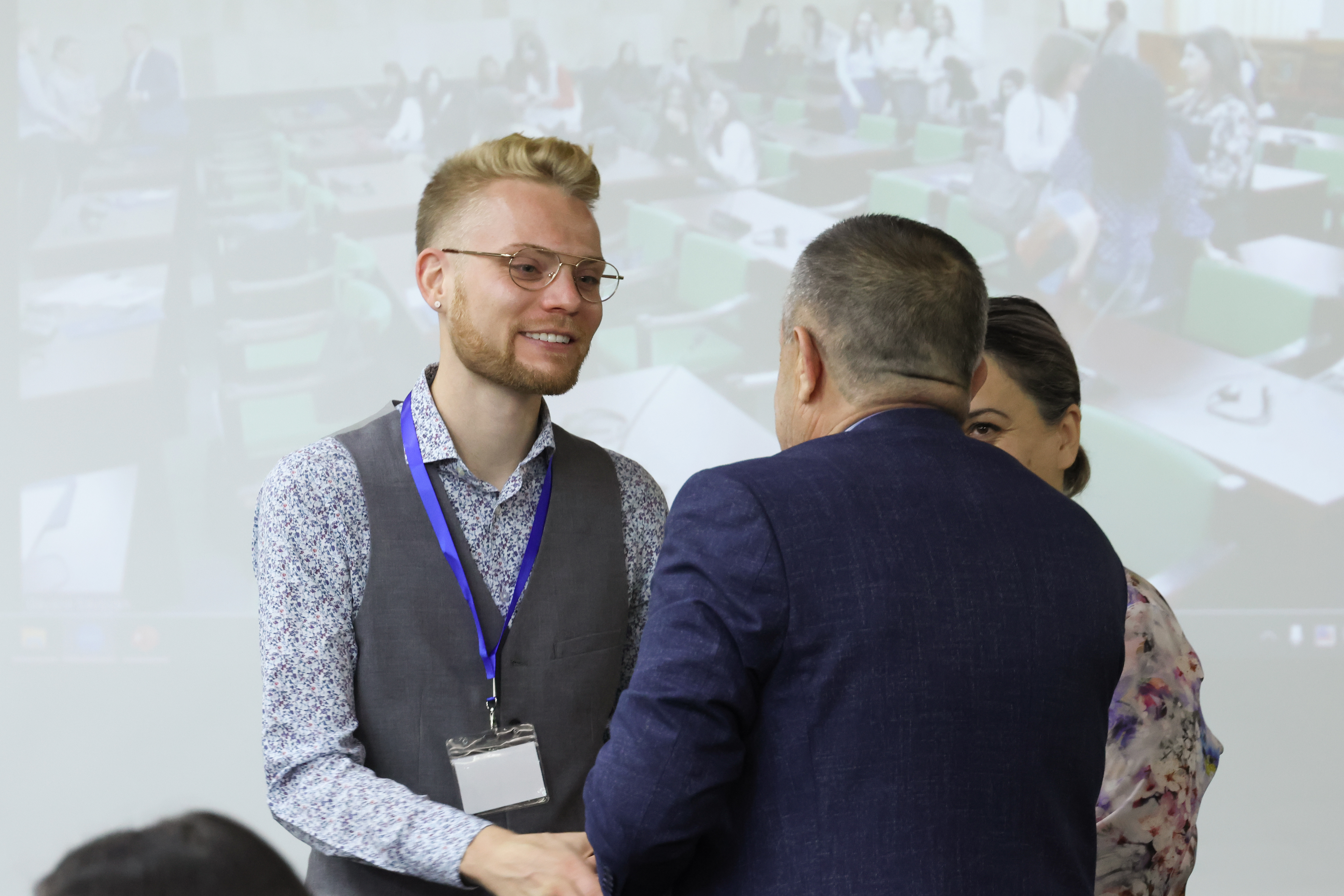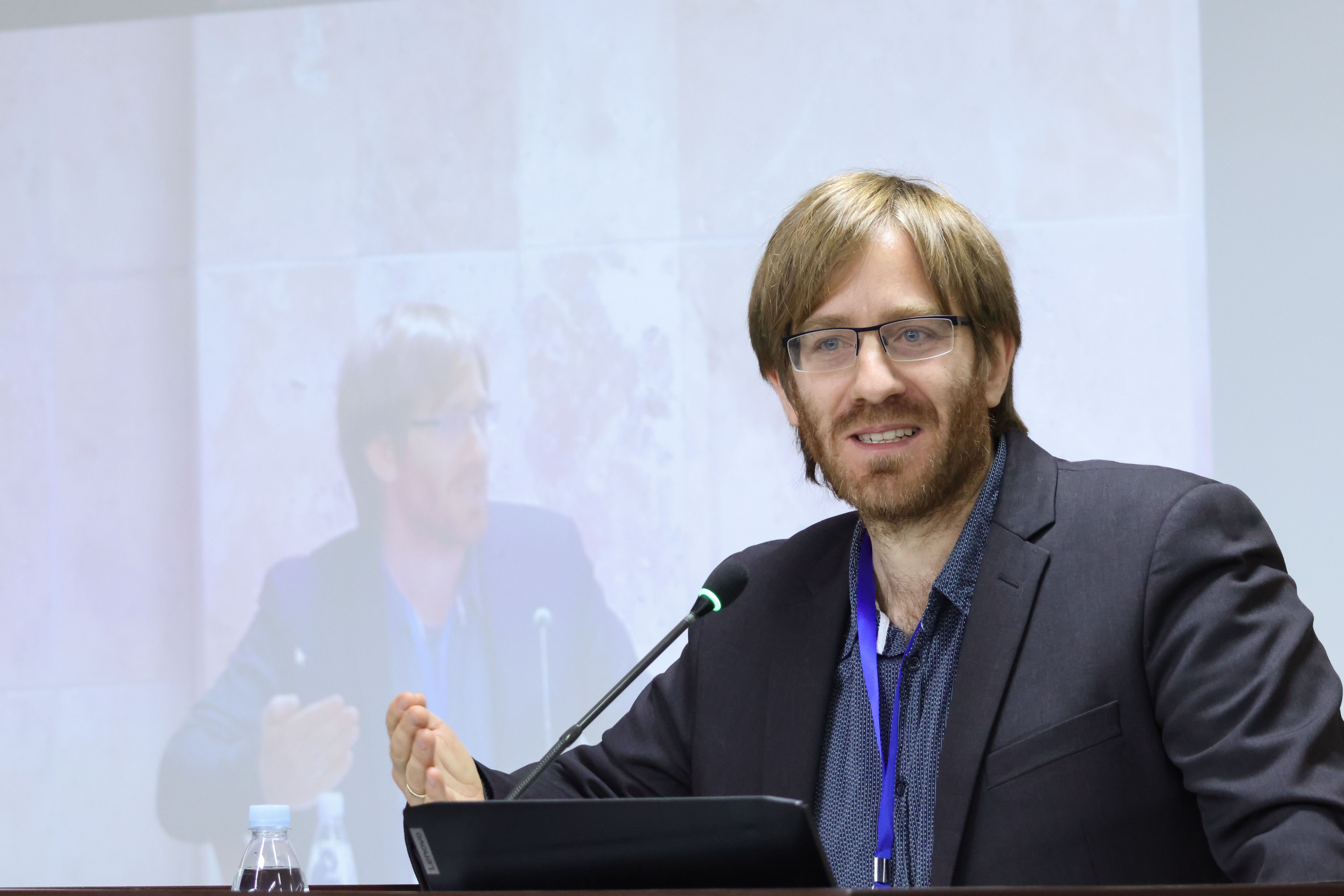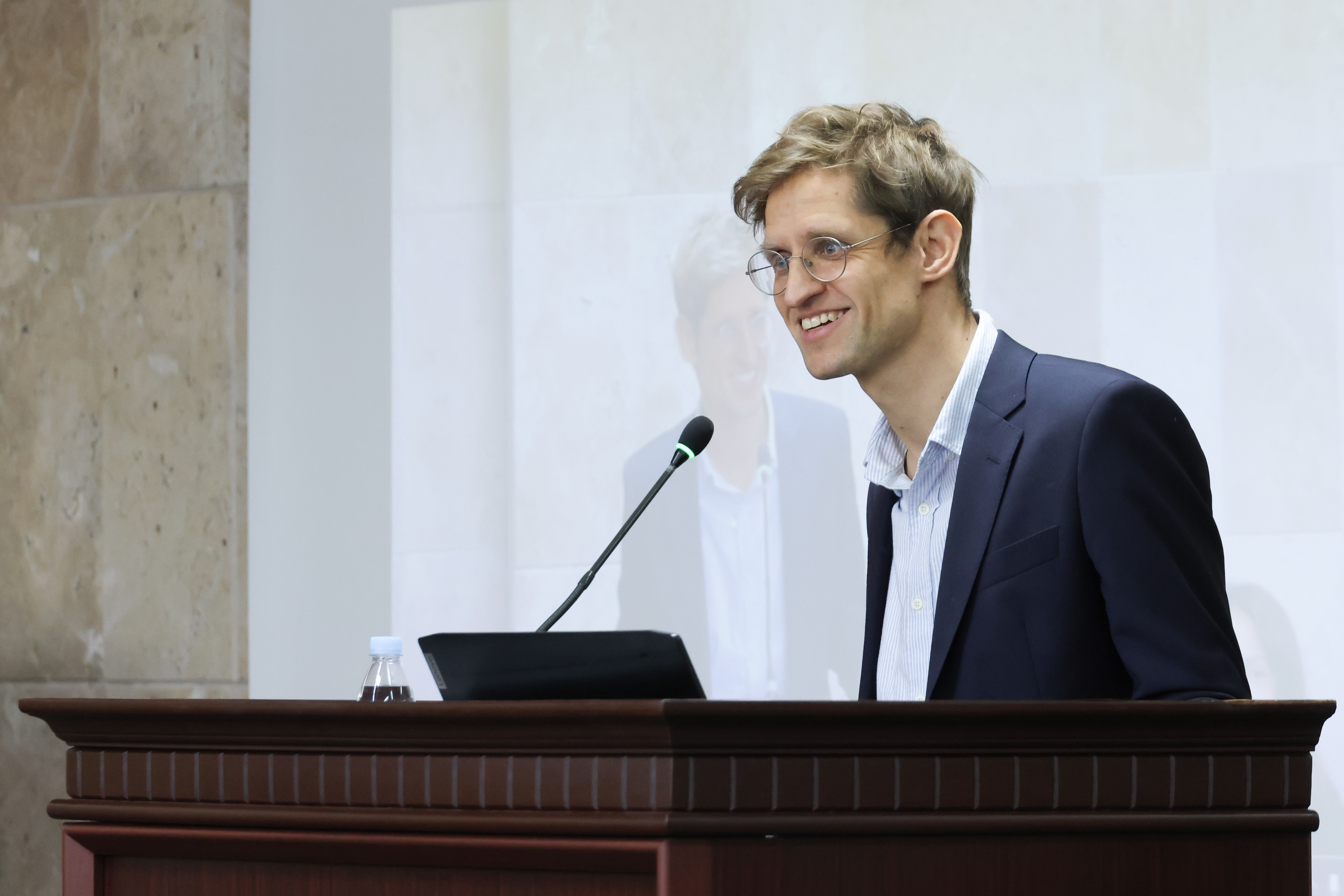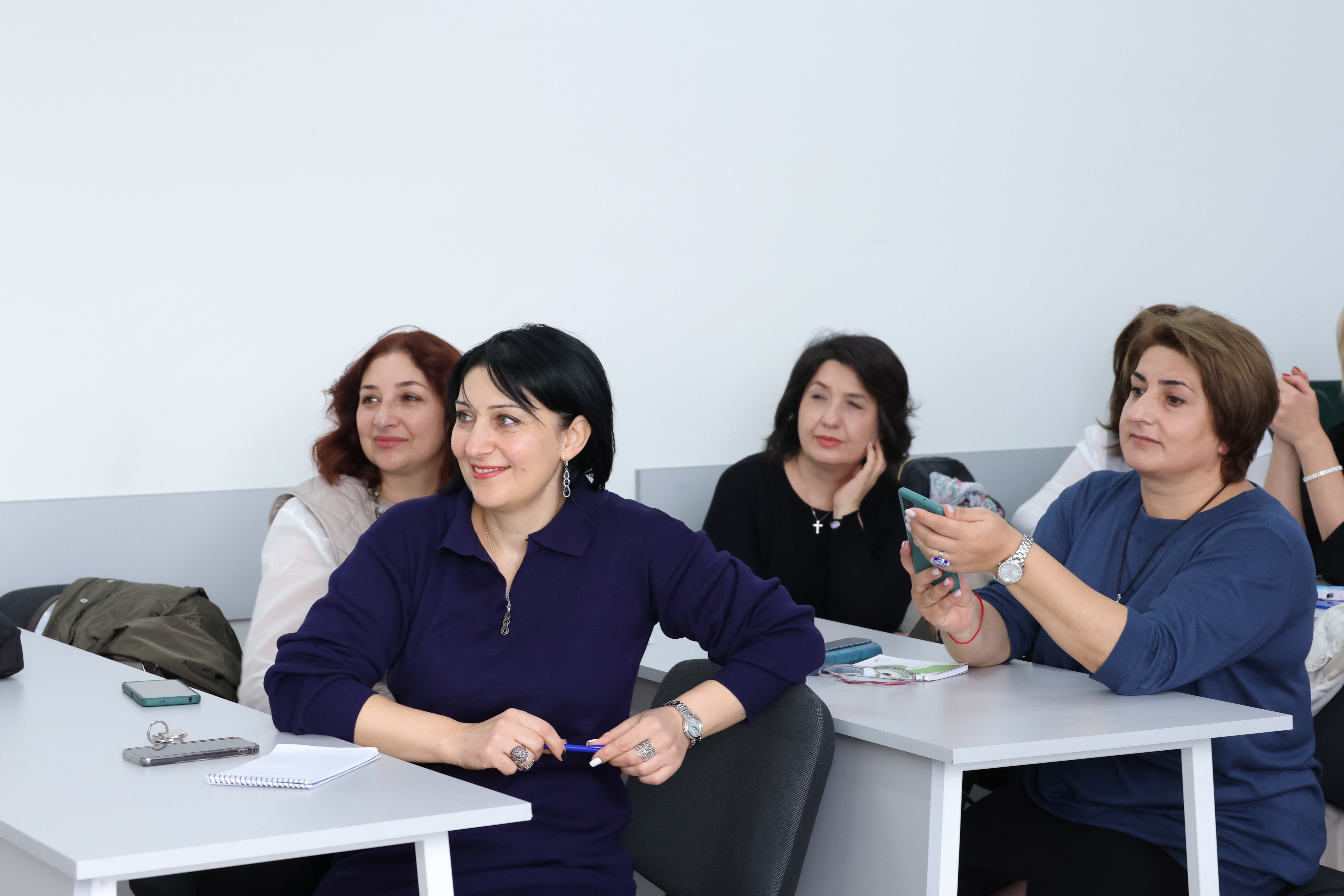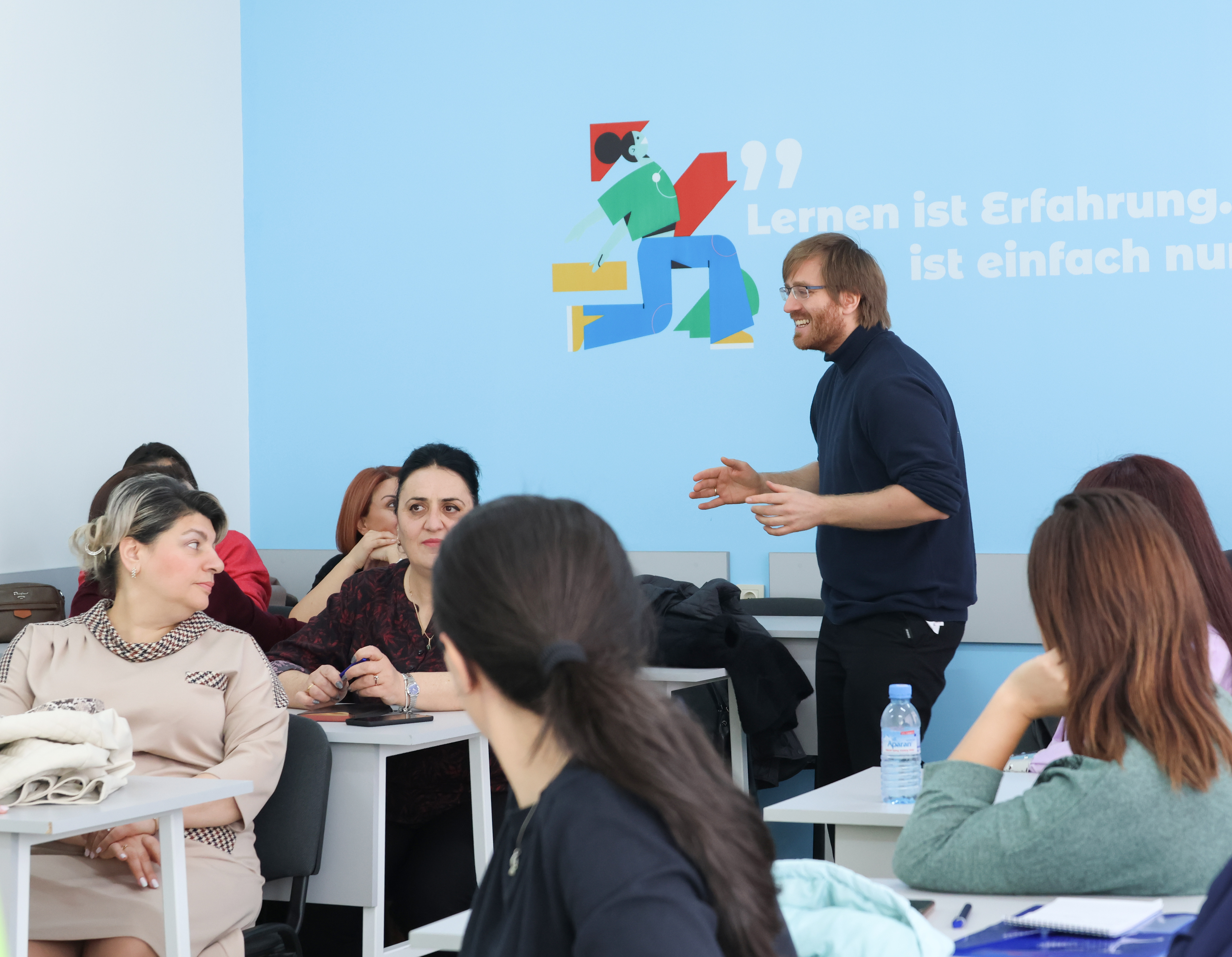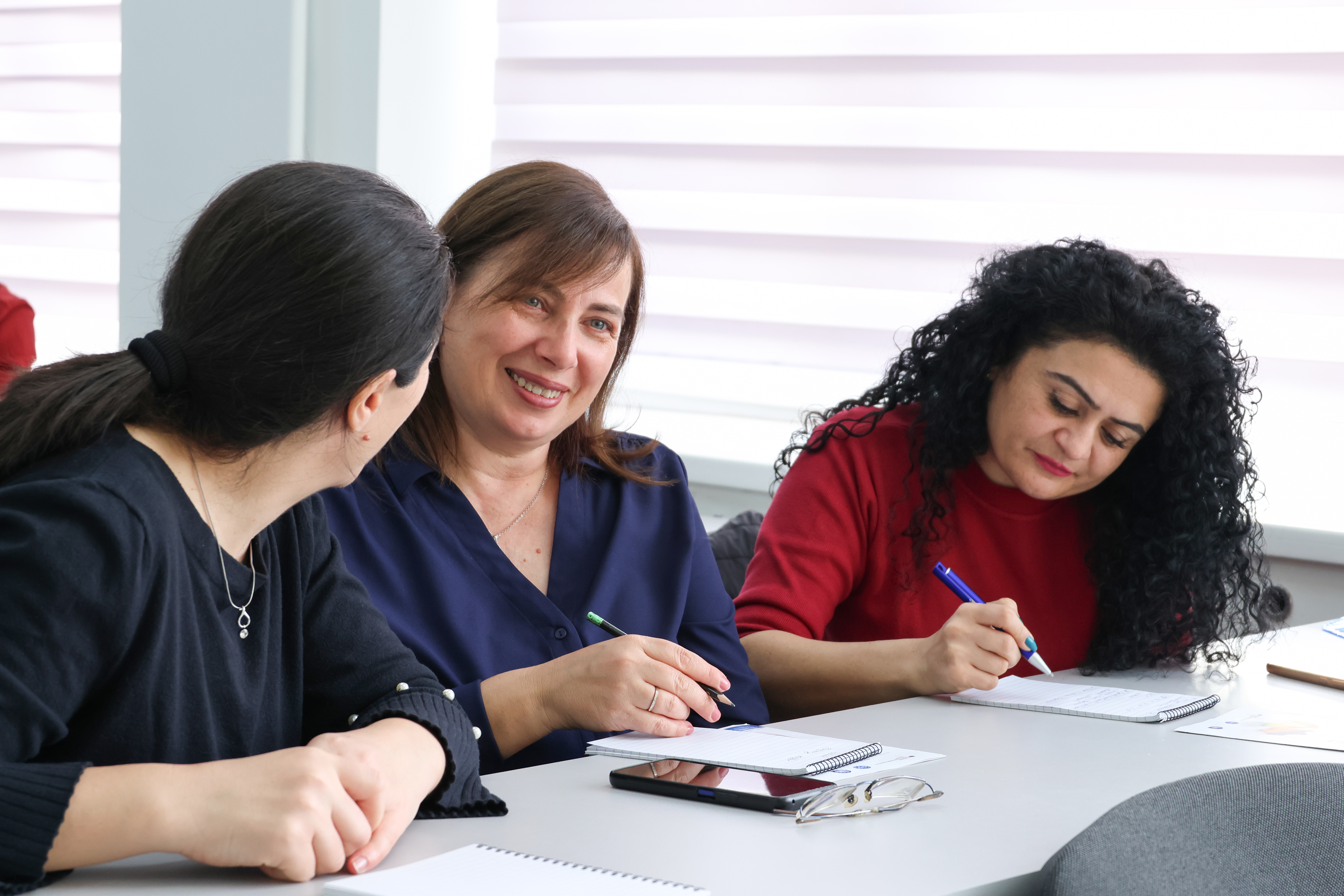November 05, 2024 | 17:25
Science
Education
International cooperation
The role of German in the multilingual world: Conference at YSU
Yerevan State University hosted a two-day conference titled "Global Multilingualism: The Role of German in Intercultural Context". The conference aimed to present the role of the German language in today's evolving world and to create a professional community dedicated to supporting educators and linguists in developing innovative strategies and solutions that align with the modern demands of German language teaching.
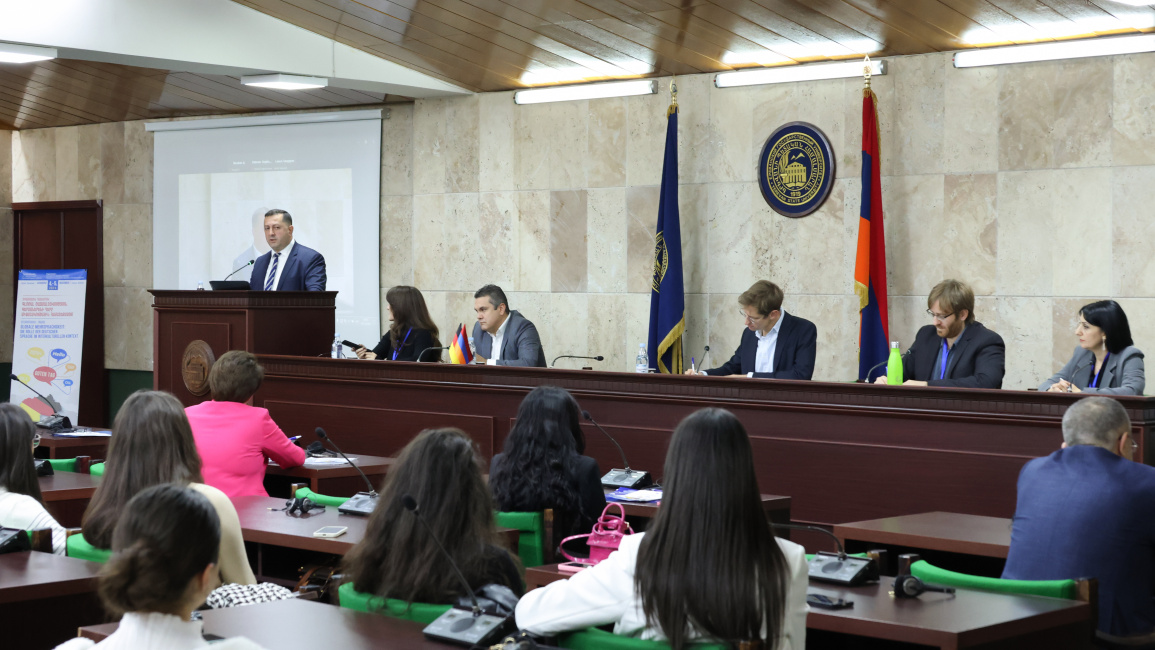
Within the framework of the conference, topics related to the spread of the German language and effective teaching methods in the field of German studies, the role of German as an international language, in competition with English, were discussed. Speakers addressed German’s place in the multilingual world, highlighting the challenges faced by educators in teaching German as a second or third language.
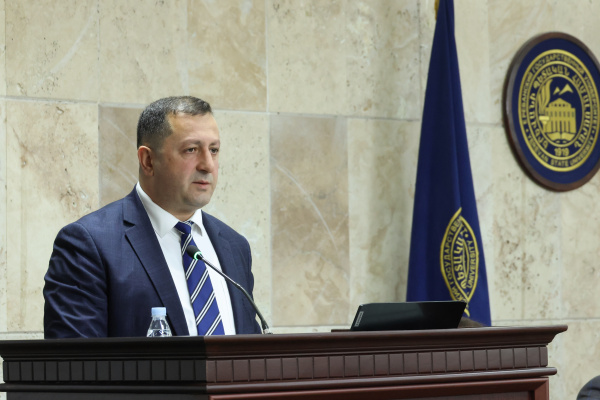
YSU Rector Hovhannes Hovhannisyan, welcoming the conference participants, stated: "This significant event underscores once again the importance of Armenian-German scientific and educational ties. YSU highly values programs that promote the spread of the German language, German culture, and the development of education in our country. The university places great importance on international cooperation, particularly in establishing partnerships with German universities and organizations. Armenian-German educational exchange programs and collaborative scientific projects enrich the knowledge and experience of our students and professors, offering new opportunities to discover new horizons in the field of science and education. I am sure this event will contribute to the further strengthening of Armenian-German cooperative ties."
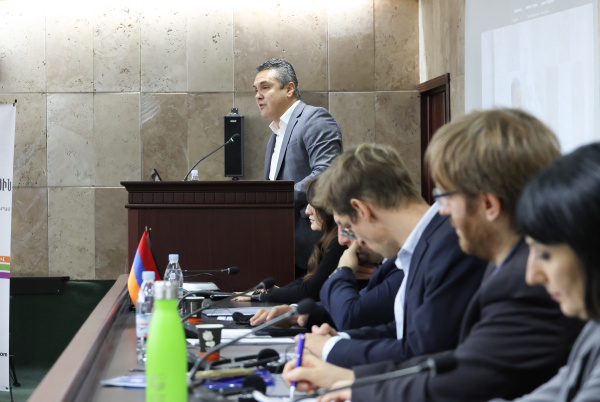
Gevorg Barseghyan, the Dean of YSU European Languages and Communication Faculty, emphasized the significance of the scientific event organized by the German Philology Chair, noting: "I’m convinced that this platform will serve as an important framework for sharing research and innovative approaches of specialists in the field. This conference aims to explore globalization and its implications for multilingualism and intercultural communication, with a particular focus on the pivotal role of the German language. German is a prevalent language in academic settings, international business, diplomacy, and tourism, therefore we place a strong emphasis on teaching German as a foreign language."
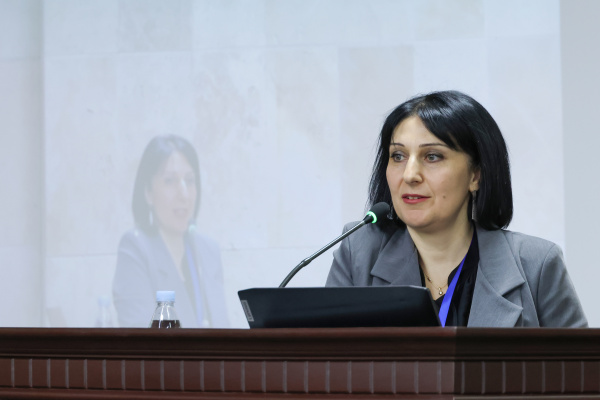
Gayane Savoyan, the Head of YSU German Philology Chair and organizer of the conference, discussed students' knowledge of German, pointing out: "Our educational program, called 'English-German Communication', faces constant competition from English, as it is an international language. Increasing students' proficiency in German presents a significant challenge for the chair, particularly since newly admitted students typically have a strong command of English but often struggle with German. Despite the widespread stereotypes surrounding the German language, we remain committed to fostering language learning through exchange programs. For instance, an average of 10 students go to Germany each year under the Erasmus+ Program, where they improve their knowledge of both German and English.
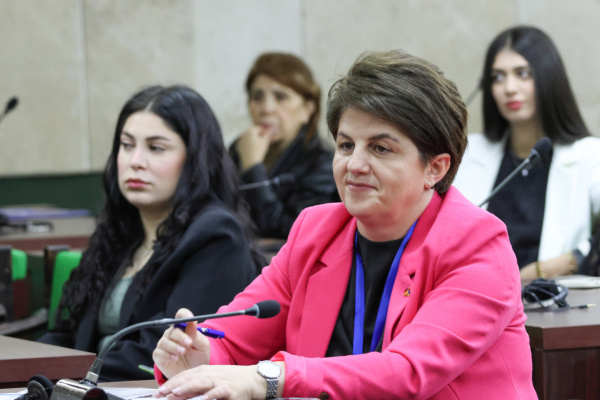
Referring to the involvement of German language specialists in the conference, Mary Navasardyan, a lecturer from the German Philology Chair at the Faculty of European Languages and Communication, emphasized: "The event was attended by teachers and German language specialists who are always eager to participate in such scientific events held at the university. By taking part in training sessions organized by the chairs, teachers are always keen to deepen their knowledge and forge new partnerships with German specialists. During the conference, they had the opportunity to receive professional advice from representatives of the Goethe Institute."
In recent years, the chair's cooperation with German universities has reached a new level, leading to regular conferences, the hosting of professors and lecturers, and the organization of educational visits for students, professors, researchers, and young scientists. These initiatives contribute to the promotion and development of the German language.
It is worth noting that the German experts who participated in the conference were impressed by the university students' proficiency in the German language.
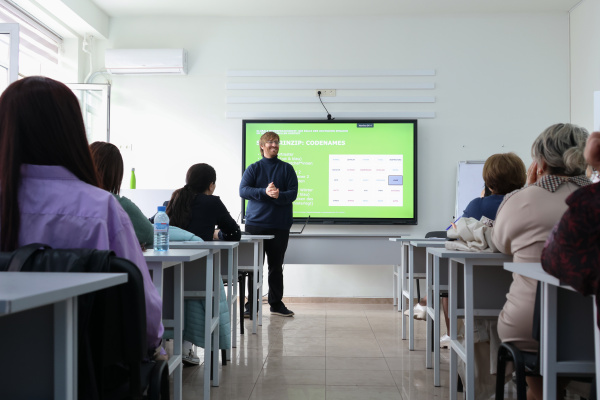
On the second day of the conference, training sessions were held for professors and teachers. Yves-Oliver Tauschwitz, a German language teaching expert from the Goethe Institute in Armenia, conducted a seminar on "Group Games in German Language Teaching", while Johannes Gereons presented a course on "Multilingualism and the Didactics of German as a Second Foreign Language". The goal of these seminars was to introduce new methods that promote student-centered teaching and actively engage learners in the classroom.
Among the attendees at the conference were Jan-Tage Kühling, Director of the Goethe Center in Yerevan, Benjamin Shpet, specialist-consultant at the Central Agency for Schools Abroad (ZfA), and other experts in the field.
